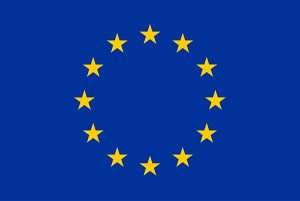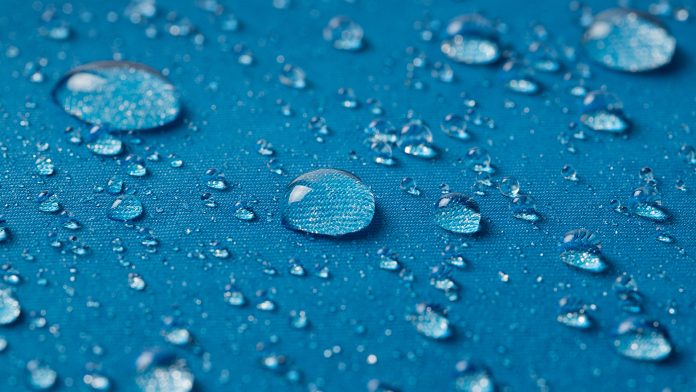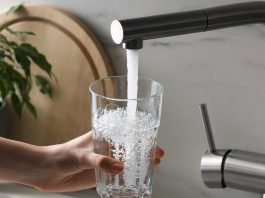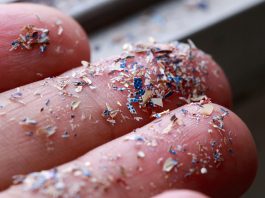The ZeroF project is driving a paradigm shift in the food packaging and textiles industries, pioneering safe and environmentally friendly PFAS-free coatings.
Co-funded by the European Union under Horizon Europe and the Swiss State Secretariat for Education, Research, and Innovation, the ZeroF project is combatting one of the most severe threats to human and environmental health – the prevalence of Per- and Polyfluoroalkyl Substances (PFAS).
PFAS, otherwise known as ‘forever chemicals,’ are widespread in an array of everyday products. Due to their resistance to degradation, these chemicals can accumulate in the body and ecosystems over time, jeopardising their health.
The ZeroF project aims to enhance environmental and health resilience in the food packaging and textiles industries, two sectors whose products contain PFAS, by innovating PFAS-free coatings.
The 36-month project, which was initiated in 2023, involves 12 research and industry partners from nine countries collaborating to create a sustainable future.
Addressing the dangers of PFAS
PFAS are a growing concern due to their environmental persistence and potential health risks. These manufactured chemicals are widespread and found in numerous everyday products like nonstick cookware, water repellents, stain-resistant fabrics, firefighting foams, and food packaging.
The danger of PFAS lies in their resistance to degradation. Unlike many other chemicals, they don’t easily break down in the environment and accumulate in our bodies and the environment. This persistence raises significant concerns, as studies suggest links between PFAS exposure and a range of concerning health problems.
Increased cholesterol, changes in thyroid function, and certain cancers, including prostate, kidney, and testicular cancers, are among the potential effects linked to PFAS exposure. Pregnant women, foetuses, and children are considered especially vulnerable due to their developing bodies and immune systems. Exposure during these critical stages may lead to developmental delays, low birth weight, and problems with the immune system’s response to vaccines.
While research is ongoing to understand the extent of these health risks fully, the widespread presence of PFAS in our environment necessitates further investigation and potential regulatory action. The persistence of these chemicals in drinking water sources and consumer products raises concerns about chronic exposure and long-term health consequences.
Prevalence of PFAS usage in Europe
The pervasive use of PFAS in Europe cannot be understated and is expertly illustrated by the Forever Pollution Map created by Le Monde and its 17 partners from the Forever Pollution Project.
The map identifies 20 PFAS production facilities, 23,000 sites with confirmed PFAS contamination, 232 industrial sites utilising PFAS, over 21,500 presumptive contamination sites, and more than 2,300 hotspots where PFAS concentration levels exceed safety thresholds.
The EU’s commitment to phasing out PFAS
The European Union is taking a major step to combat persistent pollutants, classifying PFAS as substances of very high concern (SVHC), and is in the process of restricting the manufacture and use of certain PFAS through a REACH restriction.
The European Chemicals Agency (ECHA) is moving forward with evaluating a proposal to restrict PFAS in Europe. The Agency’s scientific committees for Risk Assessment (RAC) and Socio-Economic Analysis (SEAC) will assess the proposal and consultation comments in batches, focusing on various affected sectors.
Simultaneously, the five national authorities behind the proposal – the Netherlands, Germany, Norway, Denmark, and Sweden – are updating their initial report to incorporate consultation feedback, which will form the basis for the committees’ opinions.

Nevertheless, despite the recognised health and environmental dangers, industry players and consumers hesitate to shift towards non-fluorinated products. This reluctance arises from the shortage of alternatives that deliver similar performance and cost-effectiveness.
This lack of alternatives inspired the ZeroF project to devise PFAS-free coatings. The project was initiated in response to the harmful effects associated with PFAS contamination, as it is a powerful chemical, and its production and use are posing a threat to Europe’s food packaging and upholstery textile value chains.
Goals of the ZeroF project
ZeroF endeavours to curb the escalation of PFAS contamination by pioneering innovative coating technologies suitable for food packaging and upholstery textiles.
The primary objective is to supplant PFAS with safe and sustainable compounds derived from renewable sources, all while upholding comparable performance and cost-effectiveness. A cornerstone of this initiative is the application of a Safe-and-Sustainable-by-Design framework, guiding the formulation process.
A comprehensive suite of analyses, including life cycle assessments, cost evaluations, and environmental footprint assessments, will be pivotal in reducing the environmental impact by more than 25%.
Collaborative efforts among project partners will elucidate incentives and challenges to streamline the adoption of PFAS-free coatings. This will culminate in the formulation of a certification and regulatory roadmap to anticipate evolving standards.
Ultimately, ZeroF aims to innovate a credible PFAS alternative, alleviate industry and consumer apprehensions regarding PFAS-free products, and contribute to the gradual phasing out of PFAS.
ZeroF project goals include:
- Innovate organic-inorganic hybrid PFAS-free coating formulations tailored for upholstery textiles, prioritising safety and sustainability
- Develop PFAS-free coatings to serve as effective water and oil barriers for packaging applications, ensuring safety and sustainability throughout
- Refine coating methods and optimise processing conditions to enhance the application of novel coatings
- Engineer prototypes meeting specified oil and water barrier requirements for both food packaging and textiles
- Develop and demonstrate guiding principles, criteria, and tools promoting the creation of coatings aligned with safe and sustainable design principles
- Foster increased market adoption and stakeholder buy-in for the newly developed coatings through strategic outreach and engagement endeavours
ZeroF’s holistic approach to combating PFAS pollution through innovative coating technologies represents a significant stride toward a safer and more sustainable future.
ZeroF aims to provide viable solutions and catalyse broader industry shifts towards PFAS-free products by prioritising safe and sustainable alternatives, rigorous analysis, and collaborative efforts.
ZeroF endeavours to pave the way for a cleaner environment and healthier communities through continued dedication and partnership, underscoring the imperative of responsible innovation in addressing pressing environmental challenges.
All ZeroF partners can be found at:
www.zerof.eu/partners
Disclaimer
 Co-funded by the European Union. Views and opinions expressed are however those of the author(s) only and do not necessarily reflect those of the European Union or the European Health and Digital Executive Agency. Neither the European Union nor the granting authority can be held responsible for them.
Co-funded by the European Union. Views and opinions expressed are however those of the author(s) only and do not necessarily reflect those of the European Union or the European Health and Digital Executive Agency. Neither the European Union nor the granting authority can be held responsible for them.
Co-funded by the Swiss State Secretariat for Education, Research and Innovation (SERI). Views and opinions expressed are, however, those of the author(s) only and do not necessarily reflect the official views of the SERI.
Please note, this article will also appear in the 18th edition of our quarterly publication.





